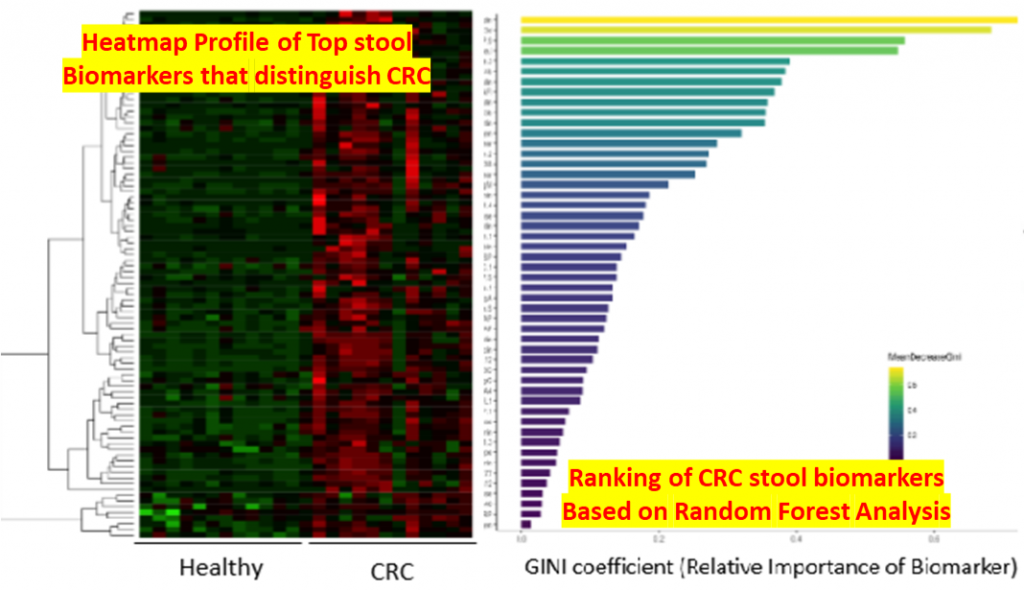
Novel stool protein biomarkers of colorectal cancer from comprehensive proteomic screens
Lead: Hao Li
Team: Kamala Vanarsa, Yanping Chen
Collaborator: Drs. Chia, Bresalier, Pedroza
Project Summary:
Colorectal cancer (CRC) is the 3rd most common type of cancer in the USA, and is also the second leading cause of cancer deaths in most industrialized nations, accounting for 10% of the total cancer burden. Most of the current CRC screening tests do not predict disease severity, do not factor in molecular information, and are sub-optimal at detecting adenomas. Even the best of these approaches, colonoscopy, suffers several drawbacks. Hence, we clearly need better screening tests for CRC. Compared with imaging and endoscopy, stool is an easy-to-obtain and low-cost test substrate, making it an ideal choice for CRC screening. A novel aptamer-based screen of >1000 proteins uncovered several elevated proteins in the stool of patients with colorectal cancer (CRC), compared to healthy controls (as shown in the Figure). Identified biomarker candidates were ELISA-validated in three independent cross-sectional cohorts comprised of 76 CRC patients, 15 adenoma patients, and 63 healthy controls, from two different ethnicities. The top performing biomarkers outperformed stool Hemoglobin and correlated significantly with depth of tumor invasion. Several of the stool biomarkers elevated in CRC were also expressed within CRC tissue, either within epithelial cells, myeloid cells, or T cells, based on single-cell RNA-seq analysis. Longitudinal studies are warranted to assess the clinical utility of these novel biomarkers in early diagnosis of CRC.
What is already known in the field?
- Presence and association of stool hemoglobin in CRC has been reported in the literature. Stool hemoglobin was re-discovered in this study, along with other novel proteins.
- Aptamer-based screens have been useful in uncovering disease biomarkers in other diseases.
What is new?
- The current study represents the first use of a comprehensive aptamer-based screen of stool samples from CRC patients.
- This study has uncovered a couple of novel stool protein biomarker molecules that have never been reported in CRC patients before.
Why is this important?
- A couple of the identified stool proteins out-performed current biomarkers used in clinical practice.
- Noninvasive detection of CRC with improved accuracy can significantly improve long-term outcome in this disease.
- Stool is easy to obtain and stool biomarkers can be repeatedly assayed, thus facilitating serial monitoring of CRC.
Ongoing/future steps:
- Expand validation to larger patient cohorts of multiple ethnicities
- Identify the earliest appearing stool biomarkers, from the adenomatous stage
- Examine expression of selected proteins in CRC cancer tissue
- Expand the proteomic screen to cover an even larger fraction of the human proteome